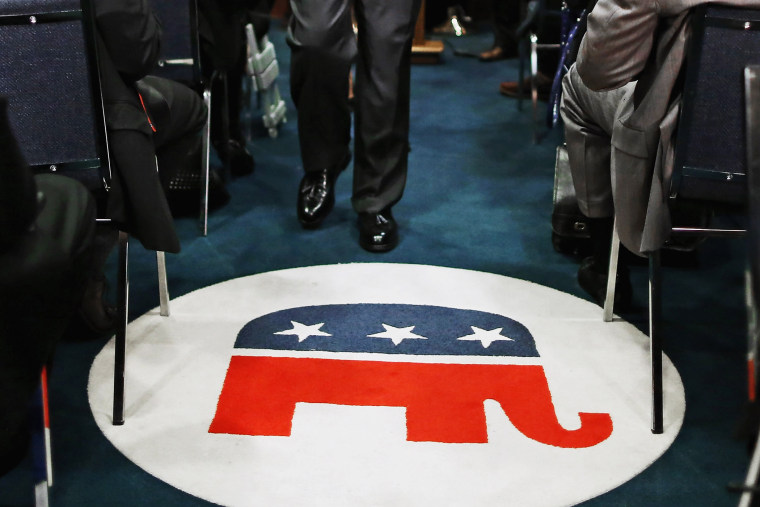Listening to the Republicans' pre-election message a few months ago, I made the case that GOP officials and candidates were acting as if they haven't been in the majority for the last two years.
Yesterday, Donald Trump sat down with The Daily Caller and argued that Republicans actually weren't in the majority the last two years.
The far-right website, in an exclusive Oval Office interview, asked the president about whether he's prepared to force a government shutdown over immigration policy. The president said he "may be" willing to do exactly that. His answer then meandered to complaining about Special Counsel Robert Mueller's investigation, the Clinton Foundation, and his success in "terminating a lot of the Obamacare."
But Trump then added this gem:
"Don't forget, I didn't really have a majority. I had one senator. And I had a few Republicans in the House. You know, a very small number."
The week after Election Day 2016, when it became clear that Republicans would control all of the levers of federal power for a while, the Washington Post published a piece documenting "just how dominant Republicans are in America" heading into 2017.
A few days later, Real Clear Politics declared that the Republican Party was, in the wake of Trump's election, "the strongest it's been in 80 years."
That was two years ago this week. Now, Trump reflects on the landscape, and thinks Republicans "didn't really have a majority."
In reality, they did. It was a modest majority in the Senate -- the GOP started 2017 with 52 seats -- but it was a more robust majority in the House. To hear the president tell it, the Republican majority in the lower chamber was "a few" seats. As this Congress got underway, the House GOP majority stood at 241 seats -- which is a 23-seat majority.
What I think Trump is looking for is an excuse. When he runs for re-election, some are likely to ask him why he has so few accomplishments, especially given the fact that his party controlled the House and Senate for the first two years of his presidency.
Trump's explanation may seem ridiculous, but he's repeating it anyway: "Don't forget, I didn't really have a majority."
